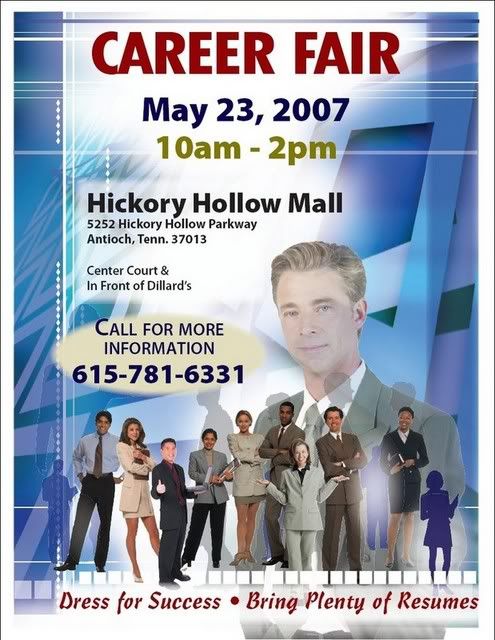
Making the Most of a Job Fair
Contributing Writer
Job fairs are a great way for you to explore potential employment opportunities and learn more about companies who are actively hiring in your neighborhood. Many people see it as something as serious as a first interview, while others view it as an opportunity to gather information about potential employers. Regardless of what reason you have for attending, there are a few important things to keep in mind before, during, and after the job fair to make it successful for you.
Before the Job Fair:
Find out what businesses will be there. The more information you can gather beforehand, the more successful the job fair is going to be for you. Find out what businesses are going to be at the job fair, and spend some time doing some research about them. What types of jobs do they have open? What kind of people are they looking for? What kinds of skills do these people need to have?
Develop some questions you'd like to ask employers. Narrow down your list of businesses to include those who have positions you are interested in, or are businesses you think you might like to work for. Then list some questions you would like to ask the company representative at the job fair.
Proofread your resume - at least twice. If you don't already have one, it is a good idea to put a resume together for a job fair. It gives employers a blueprint of your skills and something tangible to remember you by. Be sure to proofread your resume before the job fair to find any spelling or grammatical mistakes. Even if you think there are no errors, have someone else look it over too. Don't let errors overshadow your qualifications for a job!
Be sure your resume contains your updated contact information. You'll want employers to be able to reach you if necessary. Double check that your address, phone number, and e-mail address is current.
At the Job Fair:
Dress the part. As with a job interview, first impressions at a job fair are important. How you represent yourself sends an immediate message to employers about how serious you are in your job search. It isn't always necessary to wear a suit to a job fair - unless you are looking for a job that would require you to dress professionally at work. However, you should leave the jeans and t-shirts at home. "Business Casual" is usually the most appropriate at a job fair - nice slacks and a collared shirt for men and nice slacks or a skirt and a blouse for women are appropriate. Make sure your clothes are clean and pressed. Avoid wearing excessive jewelry or clothing that is too short or revealing.
Take time to talk to employers. Don't just drop off a resume and move to the next booth. Take time to get additional information and make an impression. The point is not to see how many resumes you can give to employers in the least amount of time - it is to establish some solid job prospects. Also, try to avoid approaching employers when they are crowded by a large group of jobseekers. Approaching a crowded booth makes it difficult for employers to answer your individual questions, and they are less likely to remember you when they return to their offices.
Use your research to appear confident and knowledgeable. If you have done research before the job fair, you won't have to ask the question, "What does your company do?" If you have to ask, you are wasting valuable time. Instead, you could be asking questions about the position or department you are interested in. It works to your advantage if you can tell employers how your skills match what they are looking for. Employers want to hire people who are genuinely interested in their company. Do your homework!
Have a firm handshake and maintain eye contact. Let employers know how serious you are. Greet the employer with a firm handshake, and maintain eye contact throughout your conversation. Showing interest and good manners is important, regardless of the type of job you are looking for. Every employer appreciates someone who is dedicated, conscientious, and attentive.
After the Job Fair:
Follow up with a thank you note. Experts agree that follow-up is an important part of attending a job fair. If you picked up a business card, or the name of the company's job fair representative, send a thank you note a day or two after the job fair. This is not only polite, but will let the representative know you paid attention, are serious about the job, and that you are the right person for it.
--The opinions expressed are those of the author and do not represent the views of EmploymentGuide.com, The Trader Publishing Company, or its approval of the opinions expressed therein.





No comments:
Post a Comment